 |
 |
 |
The buildup to the end continues on all fronts.
I mentioned in my Chihayafuru post earlier this weekend that Arata is like the dark matter of the Chihayaverse, in that he has a tremendous impact on the story without actually being seen. Well, it’s pretty obvious that Azuki Miho very much meets that description as well. Her odd romance with Mashiro has been at the heart of so much of what happens in Bakuman, yet we – like Mashiro – rarely see her. If Arata is the character in current anime whose impact most exceeds their screen time, Azuki is probably a close second.
The logical inference from that is that building the conclusion of a long-running series around such a character is fraught with risks. Yet Ohba and Obata – and JC Staff – probably had no option in the matter. Mashiro and Azuki’s story was always going to be the driver of the final arc of Bakuman, and if viewers feel a little disconnect towards it at first, the downside of finishing with anything else is even more perilous. As I’ve said before, there are four relationships that form the heart of this series – Mashiro and Takagi, Mashiro and his Uncle, Mashiro and Eiji, and Mashiro and Azuki. And all of those have gotten some closure except the final one. Whatever the buildup may have been, this is how the series had to conclude – and speaking only for myself, I wouldn’t want it any other way.
It seems clear now that the breakneck pacing of the third season has been executed very much with the notion of giving the final four episodes a more natural feel. We’ve effectively had two episodes in one almost every week this season but that wouldn’t have worked here, and I assume the same is going to be true of the final three episodes. While almost the entire ep is dedicated to Miauki and Mashiro, there is a brief touchbase with Eiji after he hears the news that “Reversi” was getting the anime (come on, there really wasn’t any doubt based on the preview), and that finds him exactly as one would have expected – every more charged than ever. Heishi’s message pretty much confirms what I figured – he realizes that “Zombie Gun” will be a monster whether it gets an anime right away or not. But in order to become a series of that stature “Reversi” needs the boost – it’s a perfectly logical business decision.
Ashirogi (and Kaya) are of course thrilled beyond measure when they find out that the anime deal is confirmed, and who could blame them? But Katou’s idiot friend from the Tezuka Awards party soon pisses all over their good news with a blog post where she outs Ashirogi’s real identity and (effectively) Mashiro and Azuki’s relationship in one fell swoop. I’m very glad Ohba and Obata decided to take on the toxic idol culture head-on, because it’s a shameful thing and the anime industry (which is now thoroughly infected by financial co-interest with the idol industry) generally looks the other way. It’s less of an issue for female seiyuu than pop idols generally, but this notion that they’re supposed to be pure-pure girls who must deny any personal life of their own is disgusting – a product of the shameless pandering to otaku that’s all too common in Japanese pop culture.
Happily (though not surprisingly) Azuki is willing to stand up to her boss, and uses the bully pulpit of her radio show not to deny everything as he directs her, but to come clean about her entire relationship. The practical impact of all this hullabaloo is that it threatens the possibility of Azuki getting the lead female role in “Reversi”, because the producer – quite understandably – doesn’t want to be accused of favoritism, not to mention having the controversy overshadow the anime itself. And of course the hard truth is that this is favoritism – Ashirogi are pushing for Miho because she’s Mashiro’s girlfriend. That doesn’t change the fact that she’s also good enough to have a chance anyway, and that – given as that she’s at least partly the model for the character – she probably understands the role better than any other actress possibly could.
The final scene of the episode is that radio show, and it’s quite the dramatic one – but I don’t think it’s melodramatic. The drama comes from a genuine place, and I think Kasai-sensei handles it very well. He includes the phone calls from both the idiot otaku and the supportive female fans, and it’s not hard to believe Azuki would have plenty of both calling in. Perhaps the bizarre fairy-tale nature of the romance is enough to turn the tables of public opinion in Miho and Mashiro’s favor, I don’t know – it’d certainly make a good story. The climax doesn’t come as too much of a surprise – I knew Mashiro would call in himself. But it’s a sweet irony, that they’ve limited their phone calls so religiously yet, at this moment, he chooses to speak to her directly and not just that, but to voice his support for all the world to hear. This romance can be a stretch to take in at times, but it’s at moments like this where the larger-than-life nature of it really works to its advantage – it really is like a fairy tale. And I won’t deny that I’m rooting hard for everything to work out, because the characters at the center of this story have worked so damn hard and they’re all thoroughly decent and good people.
 |
 |
 |
 |
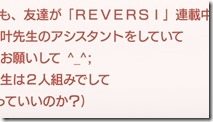 |
 |
 |
 |
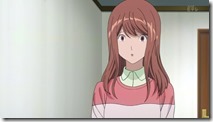 |
 |
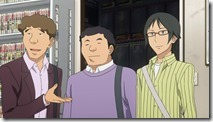 |
 |
 |
 |
 |
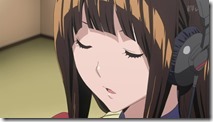 |
 |
 |



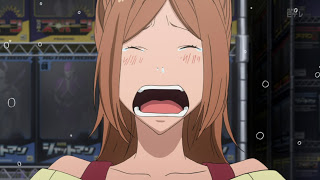
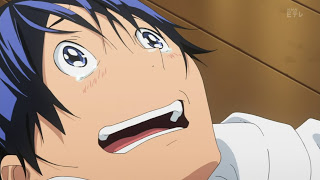
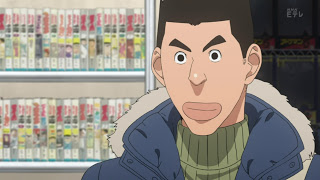
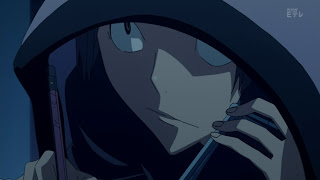
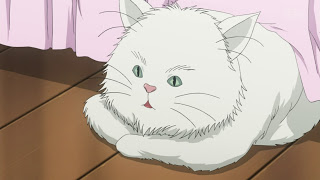
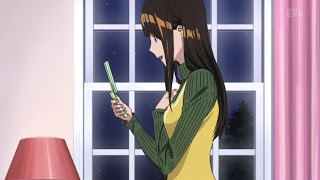
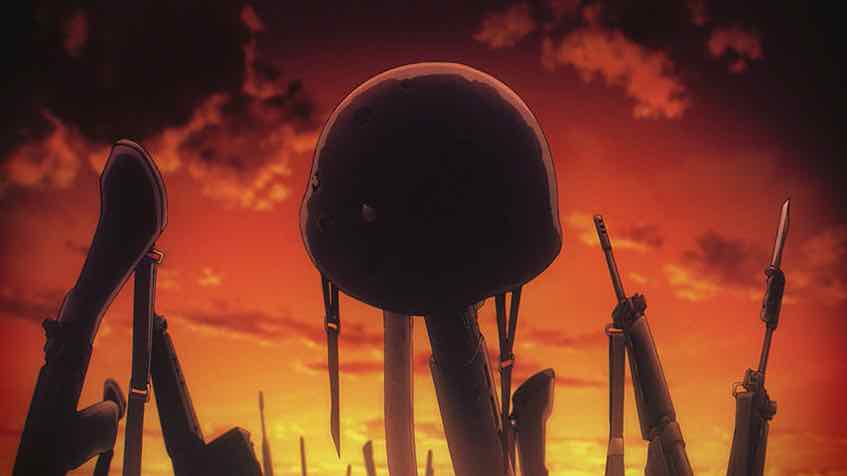

ishruns
March 11, 2013 at 12:31 pmIt is toxic and repulsive and disgusting and abhorrent and despicable and many other words. And for the life of me I can't work out where this culture came from. I mean what kind of fanatic would actually believe that these women are theirs and only theirs and shouldn't be allowed to date. And if they do they should be fired or have their head shaved.
I mean it would cost them less to just go to a host club or a brothel than buy all the ridiculous goods brought out by the idol industry. These people are pseudo stalkers (and real ones as far as Haruka Tomatsu is concerned).
In the rest of the world people spend hours pouring over every detail of the life of some celebrities, royalties or sports figures and spend just as much on sponsored goods and magazines about them but they don't butt in on their private life with hate at the mere notion of romance so why do otaku do that?
I also believe that a huge chunk of the blame should be pointed at the idol industry for fanning this blaze of creepiness.
Otaku often say that people just call them creeps and no one understands them but they are creeps and no one should have to try and understand them.
And its not just men but women as well since Miyano Mamoru's wife got death threats from rabied fans too. So this is some horrible culture, possibly exclusive, within Japan. No wonder politicians and general society hates anime.
I applaud Ohba and Obata senseis for taking on this disturbing trend along with the one of a mangaka should decide when to end their own series not the publishing company. I hope a few have realized how other people see them and why.
admin
March 11, 2013 at 1:45 pmI don't think society in general hates anime here – in fact, I'm quite confident it doesn't. And I certainly don't think all otaku are creepy stalkers. But the ones drawn to the idol industry are the worst of the lot, and it's depressing to see anime suffering from some of the same dementia.
A few obsessed creepers are giving a lot of otaku who can fully grasp the difference between fantasy and reality a bad name. But those people do exist, and it's nice to see someone in the manga/anime business call them out.
ForceRounds
March 12, 2013 at 1:44 amIn the manga, the person from Mashiro and Takagi's middle school who spreads the word that Mashiro is dating Azuki is the same guy who Takagi punched back in Season 1. He apparently did not have a successful career in manga and turned into some sort of NEET who frequented the Seiyuu blogs. Naturally, he found the perfect opportunity for revenge.